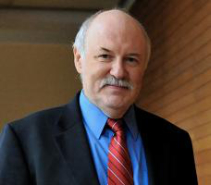Europe without memory?
It suffices to point out the claims raised by various Septentrions and Hyperboreans, as the writer Henryk Sienkiewicz called peoples and nations whose proper names were protected by censorship in his epoch, and are now protected by political correctness, and who demand huge sums in compensation from Poland. From Poland, that is from those who have been assaulted, robbed, imprisoned, and murdered. We are now called to pay, oftentimes to our oppressors or to cunning profiteers who are rich, cynical, and unyielding. For what reason? Because of the past? But are we speaking of the true past, or a fabricated, manipulated and distorted one? And if it is an untrue, slanted and falsified past, isn’t it imperative, isn’t it a matter of life and death that we come to know the true past and defend our present and our future?
It is a matter of life and death indeed! We must know the truth about our Polish past, so that we can defend ourselves against recurring attacks and attempts to physically rob us. Anti-Polish propaganda is not a goal in itself, it is the initial stage of a campaign to make us deaf and mute before the actual act of robbery takes place. That’s why we must know our history, so that we don’t let ourselves be manipulated, don’t take the blame for the crimes of others, and aren’t victimized, since it is obvious that greed and insolence follow some groups like a shadow, possibly since times immemorial.
However, history also has its much deeper meaning, because it is history that creates what is known as the spirit of the nation. Peoples without history have no spirit. They are like sand in a desert, elusive, shapeless, and characterless. Historical peoples develop their skeleton and muscle in the course of their struggle for survival in order to enjoy the opportunity to pursue their own goals. A people acquires its identity and depth and becomes a nation thanks to its moral attitude, thanks to its scientific and artistic creativity, thanks to its faith. And this means that each member of such a commonwealth can, by identifying with the historical national culture, enrich himself unimaginably, as he embraces the heritage which is the fruit of the endeavors and labors of many generations and the life of millions of human beings.
Teaching history in a self-respecting and conscious nation ought to be the apple of the eye of each school and each family. The Russians knew well what they were doing in the part of Poland under their rule, especially after the fall of the January Rising of 1863, when they brought history teachers from within the Empire to teach Polish history in Russian and from the point of view of Russian interests. No wonder that true history could only be taught in private homes. Many of us also remember how awfully mendacious the history books in the so-called Polish People’s Republic (i.e. communist-ruled Poland) were. Symbolic of this phenomenon was the Katyń Massacre whose real perpetrators couldn’t be named. But it was not only such outright lies that were dangerous. Even more dangerous was the prospect of perpetuating a falsified picture of Polish history since, according to the guidelines of Marxist ideology, history was supposed to have been one continuous course of class struggle. According to this principle, the Polish nobles were always presented in the worst possible light, and Polish kings stripped of all glamour. A young man didn’t have heart to identify with such history, so in most cases he simply rejected it. Thus entire generations grew up not knowing the history of their own nation.
And now we are hearing of new plans. The European Union intends to introduce a history textbook whose use would be obligatory in all member states. Such plans raise a multitude of doubts. One has the impression that this project aims at “smoothing” the history of Europe, so that reference to history would not awaken antagonisms and that all European nations would live in harmony, eventually merging into one European nation. Such a perspective may seem encouraging or even rosy. But it is an absolute pipe dream and a dangerous manipulation as well. There is no such thing as a European nation because Europe is itself made up of many nations. A new nation cannot be established mechanically. It would require time, work and the experience of many generations. If the officials in Brussels nevertheless insist on creating a European nation, they will try to destroy real historical nations, and the means to this end is obliterating their history. And this is the purpose of the new textbook of European history will most likely serve. It will be history without history, a mixture of fairy tales and ideology, with all the real conflicts, their true grounds and lasting effects, erased from memory.
What is the lesson to be drawn from all this? Let’s study history, very thoroughly and with comprehension, so that we are aware of the hidden objective of the attempts to deprive us of it. And so that we will not let ourselves be robbed of identity, whose crucial part is precious historical memory.
Piotr Jaroszyński
Dare to Speak up!
Warsaw 2010
